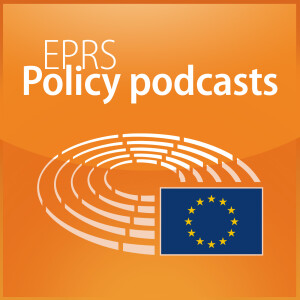
European Parliament - EPRS Policy podcasts
Business:Non-Profit

Energy policy is a competence shared between the EU and its Member States. Whereas the EU has a responsibility under the Treaties to ensure security of supply, Member States are responsible for determining the structure of their energy supply and their choice of energy sources. EU legislation on security of supply focuses on natural gas and electricity markets, and is closely related to other EU objectives: consolidating a single energy market, improving energy efficiency, and promoting renewable energy sources to decarbonise the economy and meet the Paris Agreement goals. The current legislature has seen several initiatives on security of supply. The EU institutions reached agreement on a revised regulation on security of gas supply, a revised decision on intergovernmental agreements in the energy field, and new targets for energy efficiency and renewables by 2030. Parliament has adopted several own-initiative resolutions in the energy field, including one on the new EU strategy on liquefied natural gas and gas storage, which is key to gas supply security. EU projects of common interest finance energy infrastructure that improves interconnection and supports security of supply. Negotiations between the European Parliament, the Council and the Commission (trilogue) are ongoing on a proposal to revise the regulation on security of electricity supply, as part of the clean energy package. There is growing expectation among EU citizens that the EU will intensify its involvement in energy supply and security. If this view was shared by just over half of Europeans in 2016 (52 %), it is now expressed by roughly two thirds of EU citizens (65 %). The EU will retain a key role in monitoring security of supply throughout the energy transition from a historic system of centralised generation dominated by fossil fuels in national markets, towards a new system characterised by a high share of renewables, more localised production and cross-border markets. However, the EU would need to use a special legislative procedure to intervene directly in determining the energy supply of its Member States, requiring unanimity in Council.
http://www.europarl.europa.eu/RegData/etudes/BRIE/2018/630275/EPRS_BRI(2018)630275_EN.pdf
Source: © European Union - EP
view more
http://www.europarl.europa.eu/RegData/etudes/BRIE/2018/630275/EPRS_BRI(2018)630275_EN.pdf
Source: © European Union - EP
More Episodes
Financing the European defence industry
 2024-09-13
2024-09-13
 2024-09-13
2024-09-13
Rules on 'revolving doors' in the EU
 2024-07-10
2024-07-10
 2024-07-10
2024-07-10
New European Parliament: First key tasks
 2024-06-20
2024-06-20
 2024-06-20
2024-06-20
The EU's digital trade policy
 2024-03-08
2024-03-08
 2024-03-08
2024-03-08
The path to 6G
 2024-03-08
2024-03-08
 2024-03-08
2024-03-08
Combating corruption in the European Union
 2024-02-02
2024-02-02
 2024-02-02
2024-02-02
012345678910111213141516171819
Create your
podcast in
minutes
- Full-featured podcast site
- Unlimited storage and bandwidth
- Comprehensive podcast stats
- Distribute to Apple Podcasts, Spotify, and more
- Make money with your podcast
It is Free
- Privacy Policy
- Cookie Policy
- Terms of Use
- Consent Preferences
- Copyright © 2015-2024 Podbean.com





